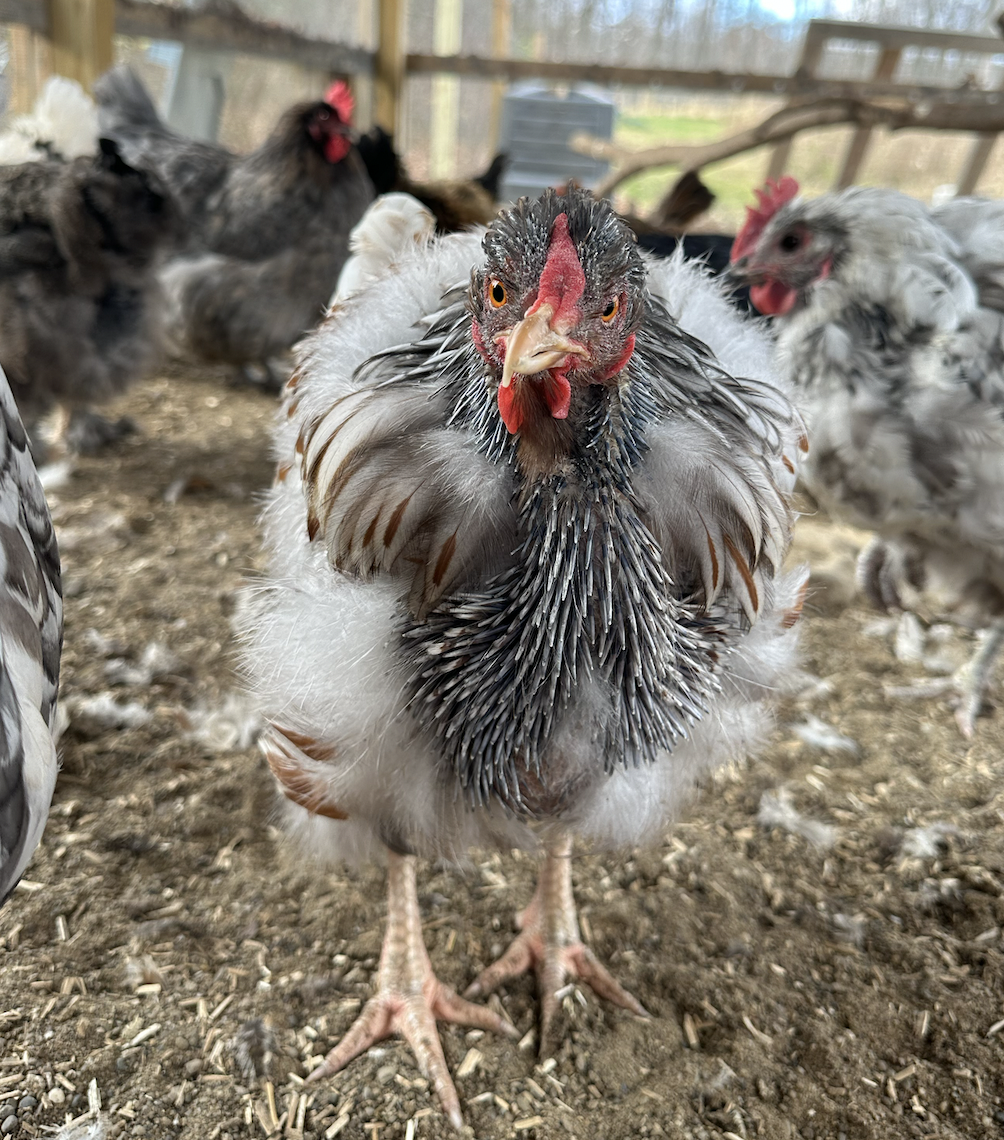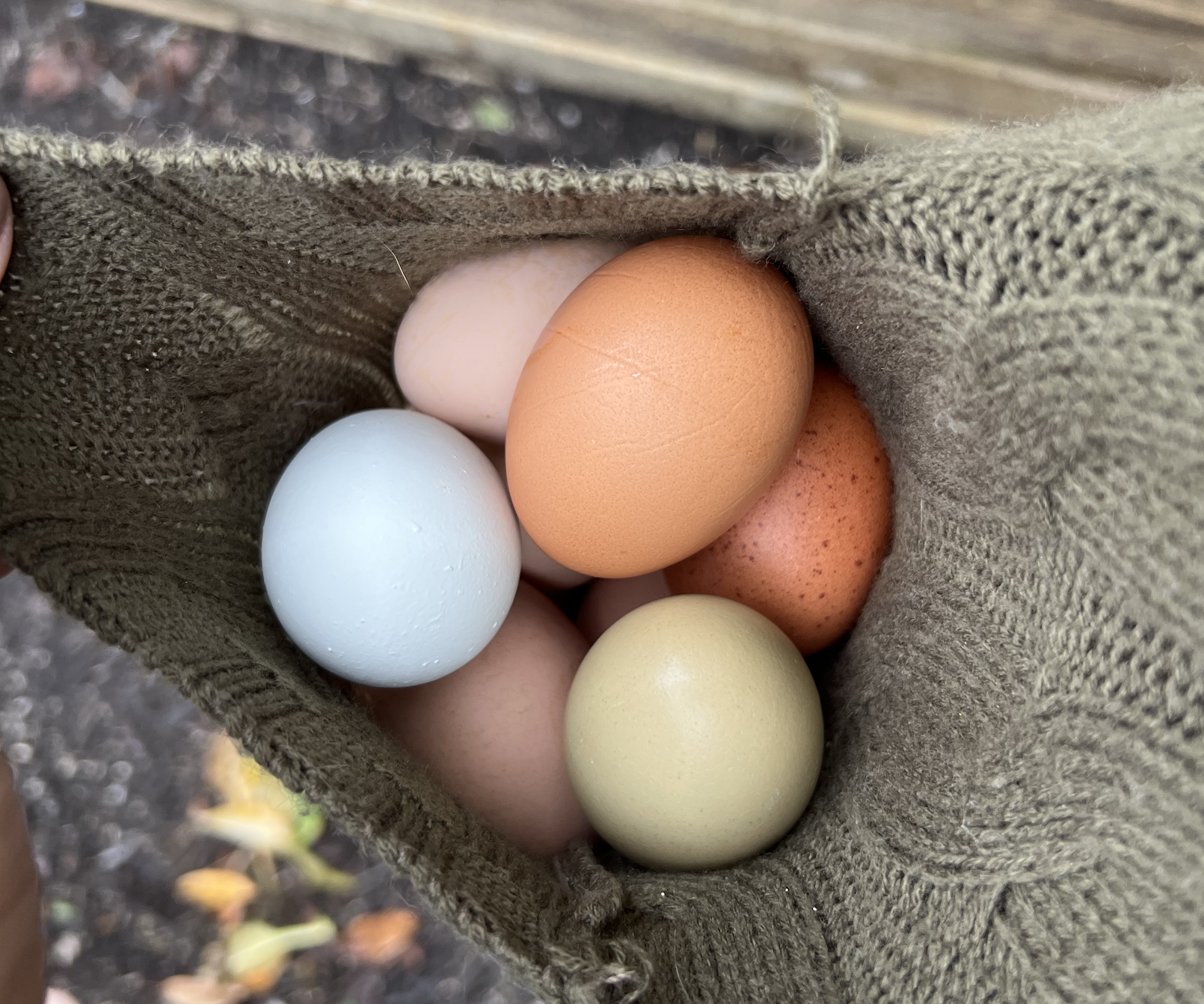Where are the Eggs!?
You can really tell a lot about your chickens and their health by observing their egg laying. It is a common misconception that chickens will lay an egg every day. Unfortunately, you aren’t going to get 365 eggs from Henrietta and if you did, her body wouldn’t last long. In this article I will talk about when chickens will lay eggs and when they won’t and what to do about it!
Side note: My book is out for preorder! Here’s a link if you are interested!! Grab it here! (Markets other than USA: search your amazon for Chicken Keeping Pure and Simple by Nikki Husted)
Young Layers
Chickens generally start to lay eggs around the age of 20 weeks. If you think about it, that is a quick growth to maturity in the animal kingdom. I have seen and heard of chickens who lay as early as 15 weeks and as late as 9 months. Just like humans, chickens mature at different rates. Their hormones and body have to be ready to lay eggs before they will start doing so. There is no safe way to force a chicken to lay eggs sooner than she is ready. When people message me asking how to get eggs from their chicken, my answer is always the same…patience!
There are signs to watch out for when you are waiting (patiently) for eggs. A chicken’s comb will begin to turn bright red before she lays eggs. A chicken who is 20 weeks old with a pink comb is probably still a few weeks or more away. Other than bright red combs, you will see your hens being nosy around the nest boxes. Sometimes they even pace around in front of them or jump in and out. They do this for a week, or sometimes more, before actually laying an egg.
If you have all young chickens, it is best to keep nest boxes off limits until they are getting closer to laying. Most people open the nest boxes around 17 weeks unless they see signs sooner. Opening them too soon will encourage young chickens to sleep in them. When nest boxes are slept in, they are pooped in and that creates unsanitary conditions for future eggs.
Around the time the chickens are all 18 weeks, you can switch them to layer feed and offer crushed oyster shells on the side. If you have younger chickens in the group, just keep them on chick feed until they are all old enough. This will not prevent the older ones from laying eggs as they will still get calcium from their oyster shells if they need it. Do not provide young chickens with supplemental light. This could cause them to lay early and could make them become egg bound which is life threatening.
No eggs!!??
Chickens will stop laying eggs for various reasons. When a chicken’s body or mentality is stressed, she will usually take a break. Stress can come from predator attacks or sightings, injury and illness, crowded conditions, bullies in the flock, over mating by roosters, weather conditions being too hot or too cold, severe storms, people bothering/tormenting the chickens, lack of food and water, poor nutrition, a move to a new coop or new home, the addition of new flock members, etc. When a chicken stops laying due to stress, she will not start again until the stress has gone away and she is feeling safe & well again. That time frame is different for every situation. As a chicken keeper, your job is to eliminate stress as much as possible. When your chickens are dealing with stress, consider supplementing their water with probiotics and electrolytes.
Fall & Winter Egg Drop
Chickens often stop laying or slow down production in the fall and winter. In the fall, chickens usually go through a molt. They lose old feathers and grow new ones. You’ll see pin feathers coming in. Some chickens go through a soft molt and you barely notice, others go through a hard molt and look almost bald. This molt is not only stressful to the body but it uses protein and calcium to regrow feathers that are normally used to create eggs. Many first year chicken keepers think that chickens stop laying in the winter and then get excited when their special ladies keep laying. Don’t worry, that happens to all of us! The truth is, in most cases, first year chickens don’t molt and will keep laying all winter but you will notice the drop off the following year. This isn’t always the case. Some first year chickens will molt and you may notice your first year hens slow down or stop all together. More about molting here: MOLTING
After chickens finish their molt, at least in my part of the world, it is very cold out. The stress from the cold, the lack of sunlight, and the need to preserve energy to stay warm causing chickens to keep their eggs hostage. Many chicken keepers will provide supplemental light for a few hours to trick the pineal gland to tell the body there is enough sunlight to keep laying. I choose to let the chickens have an egg laying break as nature intended but I do not need eggs to sustain my family. We store extra eggs by freezing them to get us through the winter if needed and I usually have a few new layers who keep on going. Choose what is right for your family and flock.
broody
Hens might stop laying eggs when they are broody. A broody hen is one who wants to sit on a clutch of eggs long enough to hatch them out into babies. She pulls out her belly feathers and stays in a flay position on the nest day in and day out. She will stop laying eggs and just sit there. Sometimes she will screech at you or other flock members. If you want baby chicks at your house, you can give her fertilized eggs. If you do not want babies, it is unhealthy to let her stay there as she will go much longer than the normal 21 days it takes and it will diminish her health. I have a saved highlight bubble called “broody” on my instagram that you may find helpful.
Old Ladies
As chickens age, their reproductive systems become less…well, productive. Chickens may stop laying eggs all together or just lay an egg every once in a while. There is no way for me to guess when this will happen for your chicken because it depends on so many things. Did you supplement them with light over the years forcing them to lay? Did they and do they have good nutrition? Their breed, hormones, and age plays into this as well. Generally speaking, you will notice a slow down in production around the age of three or four and they may stop completely a few years later. Chickens are all different so this will vary. People always ask me what we do with the old ladies. We just let them live here rent free, scratching around in the fields and eating bugs until they pass over the rainbow bridge. Years of service deserves a stress free retirement.
On the left you can see Rosalina as a young pullet and on the right she is almost laying eggs. Notice the comb difference!
This article contains affiliate links to amazon products. Clicking the links supports my work but does not cost you anything additional. Thank you so much for your continued support!






